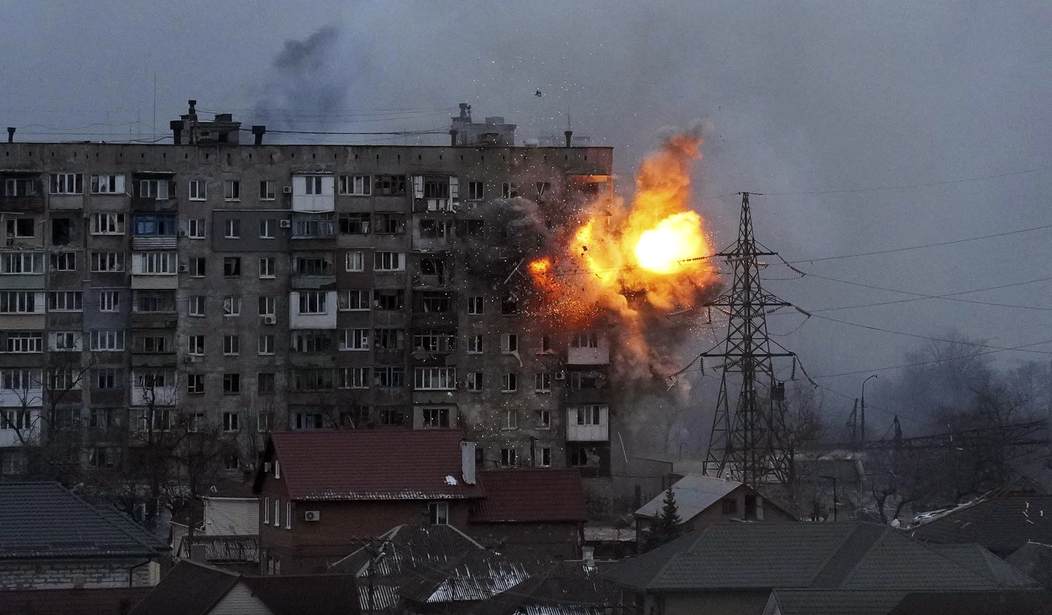As recently as Monday, President Joe Biden had been saying that he didn’t plan to provide America’s longest-range missiles to Ukraine. This decision appeared to be based on concerns that some analysts had raised over the possibility that Zelensky might use them to strike targets inside of Russia. That might “risk expanding the war and pulling in NATO nations.”
But yesterday, Biden did yet another about-face and said that America would be sending some of our most advanced missiles that can strike targets up to 80 kilometers (50 miles) away. The offer comes with a caveat, however. He demanded a promise from Ukraine that they wouldn’t use them to strike targets in Russia. Zelensky supposedly agreed, so the weapons will be on the way this week along with yet another flood of cash. (NY Post)
President Biden announced in an op-ed Tuesday that his administration will send advanced missile systems to Ukraine — reversing course from a day earlier when he said the US would not deliver the rockets to the war-torn country.
“We have moved quickly to send Ukraine a significant amount of weaponry and ammunition so it can fight on the battlefield and be in the strongest possible position at the negotiating table,” Biden wrote in a New York Times op-ed.
“That’s why I’ve decided that we will provide the Ukrainians with more advanced rocket systems and munitions that will enable them to more precisely strike key targets on the battlefield in Ukraine.”
Biden is continuing to insist that we “are not encouraging or enabling Ukraine to strike beyond its borders.” Doing so would, in the opinion of the White House, “prolong the war.”
This entire argument makes no sense to me on a couple of levels. One of the main concerns being expressed is that these missiles might be seen as “a bridge too far” for Putin and he might launch attacks on American or NATO forces in eastern Europe in response. But we’ve been giving Ukraine some fairly high-end military technology all along, including killer drones and rockets that can blow tank turrets into the stratosphere. Are these missiles really the one thing that would push Putin over the edge?
As to the debate over which weapons can or can’t reach targets inside of Russia, that’s a rather silly question, isn’t it? The two countries share a border. All of these weapons are portable. Whether or not they can be used against targets in Russia is simply a question of where you’re standing. If you’re right on the border you can hit Russia with a grenade or even a slingshot.
My biggest objection to this argument, however, rests on the question of who decided that it would be out of bounds for Ukraine to strike targets in Russia. They are at war, no matter what Putin wants to call it. Their country was invaded and many of their cities have been leveled. By any interpretation of the rules of engagement, when you are at war you are perfectly entitled to launch attacks inside of the country that attacked you, provided they aren’t civilian targets. (Which Russia has already done repeatedly in Ukraine.)
If they have the missiles and the firepower to do so, Zelensky should absolutely be taking out Russian fuel depots and ammunition dumps across the border to weaken the enemy’s ability to support and supply its offensive. It would also be perfectly legitimate to attack troop convoys, tanks, and other military resources making their way toward the Ukrainian border. The old saying all’s fair in love and war is in our language for a reason. Ukraine has been under sustained attack since February. They are entitled to inflict some pain on the Russians and they should probably already have started doing so.
Just as a fun reminder, here’s that Russian tank turret looking like a rocket being launched.








Join the conversation as a VIP Member